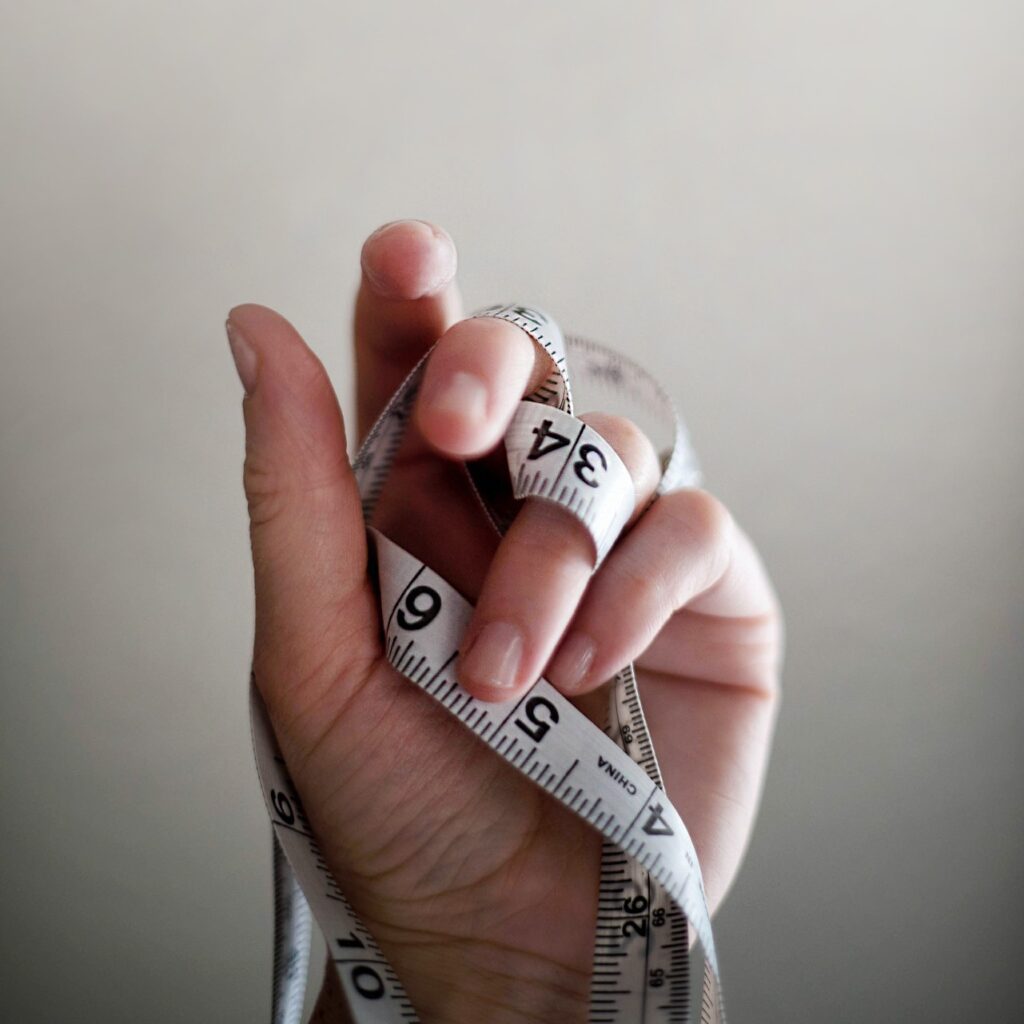Julie Pichler (MBANT), our newly-appointed resident expert nutritionist, advises on eating disorder awareness and where we can find support for those potentially at risk.
“It is estimated that 700,000 people in the UK suffer from eating disorders, and with isolation during the pandemic and reduced community services, numbers and hospital admissions in the UK are on the rise. 90% of sufferers are female (though men and boys are less likely to seek help), with teenagers or young adults most at risk. Here is an introduction to the most common forms of eating disorders, and where to find information and support if you are worried about a family member, friend, or colleague.
“Eating disorders are psychiatric conditions involving an unhealthy attitude to food, which can take over your life and make you ill. This could mean eating too much or too little, being obsessed with weight or body shape, excessive exercise, having strict food routines and/or deliberate vomiting after eating.

“Anorexia Nervosa is characterized by self-starvation and excessive weight loss, often with an intense fear of gaining weight and disturbed body image, believing they are fat, and unable to understand the seriousness of their low weight. Typical behaviours may include calorie counting or portion control, self-induced vomiting, use of laxatives and compulsive exercise. A formal diagnosis may not be given until body mass index is less than 18.5 (normal being 20-25).
“Physical symptoms include delayed puberty or lack of a menstrual cycle in women, cold intolerance, constipation, fatigue, osteoporosis, and irregular heart rhythms.
“A treatment plan will include weight gain, therapy to address body image, and any complications from malnourishment. Treatment could be in hospital or as an outpatient and likely involve a psychiatrist, dietitian, social worker, and possibly hormone and digestion specialists. There is no prevention of anorexia, and treatment may be long term.
“Bulimia Nervosa sufferers are caught in a cycle of eating large quantities of food (bingeing), then compensation for that overeating by vomiting, taking laxatives or diuretics, fasting, or exercising excessively (purging). However, it may be less easy to spot, presenting with a normal or
overweight body mass index.
“You may notice changes to a sufferers’ emotional state before any physical changes. They may be preoccupied with and secretive around food, or feel self-conscious about eating around others. Low self-esteem, irritability and mood swings, and feelings of guilt, shame, and anxiety, especially
after a binge are common.
“Physically, frequent vomiting can cause dental problems, and laxative misuse can affect the heart and digestive system. Bulimics may also experience tiredness, bloating, constipation, abdominal pain, heartburn, irregular periods, swelling of the hands and feet, and insomnia.
“Treatment is usually outpatient (unless the patient is thought to be suicidal or at risk of severe self-harm), centred around cognitive behavioural therapy (CBT) or Interpersonal Therapy (IBT). Other supportive therapies include Emotional Freedom technique (EFT), eye movement desensitizing and reprocessing (EMDR), and hypnotherapy.

“Binge eating disorder involves eating excessive amounts of food in a short time, but without compensatory behaviours such as purging or restriction. Patients may describe feeling disconnected or having no control over a binge, or even struggling to remember what they have eaten afterwards.
“Typical practices include:
• Eating faster than usual
• Eating past the point of fullness
• Eating when not physically hungry and identifying as an emotional eater
• Eating alone or in secret
• Feeling upset or guilty after overeating
• Buying and hoarding food
“Binge eating disorder may cause weight gain, and can lead to high blood pressure, high cholesterol, type 2 diabetes and heart disease. People may also have low self-esteem, lack of confidence, depression and anxiety. Treatment again is centred around CBT, this may be self-directed, group or individual therapy.
“Orthorexia is characterized by pathological obsession for biologically pure or clean food which leads to significant dietary restriction. A healthy diet may spiral into an obsession with clean eating, excluding food from their diets that they consider impure such as meat or dairy because they believe themselves intolerant, allergic, or based on moral judgement. Emotional wellbeing is overly dependent on eating the “right” food.
“Orthorexia is not clinically recognised as a separate eating disorder, and may overlap with anorexia, obsessive compulsive disorder, or delusional disorder. If you notice feelings of anxiety, guilt, or uncleanliness over eating food regarded as healthy, in combination with physical signs such as weight loss, weakness, fatigue and low energy, then seeking advice from a GP is advised to determine the most appropriate treatment.
“We can all support those potentially at risk by providing a listening ear, supporting self-esteem, and helping sufferers feel valued, which can be an important first step in encouraging the seeking of professional help.
“Stay safe,
“Julie.”
Julie Pichler (MBANT), resident expert nutritionist at We Are Wellbeing.

Where to find more information
Contact with a patient’s GP is always recommended in the first instance, but the following sites can provide guidance on what questions to ask, or have online forums to provide support:
Anorexia Bulimic Care: https://www.anorexiabulimiacare.org.uk/
Helpline: 0300 111213
Beat Eating Disorders: www.beateatingdisorders.org.uk
Helpline: 0808 801 0677 | help@beateatingdisorders.org.uk
National Centre for Eating Disorders: https://eating-disorders.org.uk/about/ Support Line (UK): 0845 838 2040
Recommended reading: Hope with Eating Disorders Second Edition: A self-help guide for parents, carers and friends of sufferers, by Lynne Crilly, Hammersmith Help Books (2019).
References:
Beat Eating Disorders (2020) Bullima Nervosa.
Available at: https://www.beateatingdisorders.org.uk/types/bulimia
BMJ Best Practice (2021) Anorexia Nervosa
Available at: https://bestpractice.bmj.com/topics/en-gb/440
Guardian (2020) Hospital admissions for children with eating disorders rise by a fifth in England.
Available from: https://www.theguardian.com/society/2020/dec/29/hospital-admissions-for-children-witheating-disorders-rise-by-a-third-in-england
Moore CA, Bokor BR. Anorexia Nervosa. [Updated 2020 Nov 23]. In: StatPearls [Internet]. Treasure Island (FL): StatPearls Publishing; 2020 Jan-. Available from: https://www.ncbi.nlm.nih.gov/books/NBK459148/
National Centre for Eating Disorders (2019) Binge Eating Disorder.
Available from: https://eatingdisorders.org.uk/information/compulsive-overeating-binge-eating-disorder/
NICE (2019) Eating Disorders: How common is it?
Available from: https://cks.nice.org.uk/topics/eatingdisorders/background-information/prevalence/







